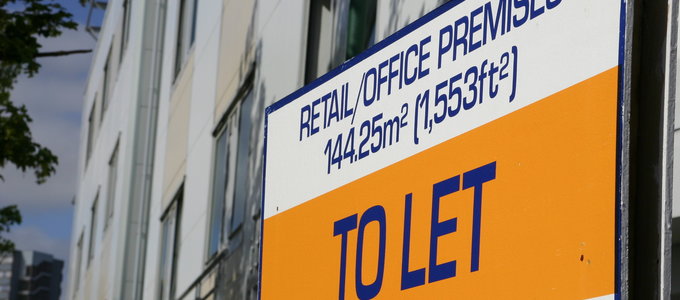Commercial Lease Debt: new Code of Practice and new Commercial Rent (Coronavirus) Bill

Further to our recent announcement concerning the eviction moratorium of commercial tenants being extended by the government until 25 March 2022, the government has now introduced a new Code of Practice which applies to all commercial leases held by businesses where rent arrears have built-up, due to an inability to pay during the COVID-19 pandemic.
The government has not just stopped there, they have also introduced a new Commercial Rent (Coronavirus) Bill which prohibits landlords from using any recovery methods, including a court judgement to recover protected rental arrears, other than by the means of arbitration.
What is the Commercial Lease Eviction Moratorium?
The Moratorium which runs until March 2022 gives vital breathing space for businesses and retail companies with commercial leases who have been financially affected by the coronavirus pandemic, with several unable to pay their lease payment obligations, facing forfeiture and mounting commercial rent arrears, job losses or fear of formal insolvency proceedings.
The eviction Moratorium allows landlords and tenants extra time to assess and to negotiate the commercial rent arrears of tenants that might have accrued during the pandemic.
What is the new Code of Practice?
The government’s new Code of Practice, provides landlords and tenants with clear guidance on how to resolve COVID-19 related commercial rent disputes with a process for settling outstanding debts before any formal arbitration process comes into force.
-
Tenants Unable to Pay – in the first instance, the Code sets out that tenants should negotiate all rent arrears with their landlord in the hope that the landlord agrees to a reduction or waiver of some, or all Covid-19 rent arrears.
-
The Code sets out recommendations to ascertain the viability and affordability of arrears payments due.
The Code encourages specific behaviours of landlords and commercial tenants to act reasonably, responsibly and with transparency; acting in a collaborative way towards a swift resolution.
Madhvi Panchal, Solicitor, Dispute Resolution team,
Lawson-West Solicitors, Leicester says:
“This badly needed Code of Practice provides clarity and direction for both the commercial landlord and tenants affected, but also for the debt recovery and dispute resolution industry because it encourages parties to begin by negotiating their differences of commercial lease payment arrears towards a satisfactory resolution and only then to consider litigation when the new Code of Practice fails to deliver a compromise. In my opinion, a fair and swiftly-resolved dispute is far better for all concerned in these instances.”
What arrears are protected under the Bill?
The latest article from the Sheriffs Office outlines the new legislation relates to protected rent arrears; the criteria for which are:
-
A business tenancy, as defined by Part II of the Landlord and Tenant Act 1954;
-
Where the business and/or premises were required to fully or partially close under Coronavirus regulations regardless of whether some limited activities were permitted despite the obligation to close; and
-
The arrears related to the “relevant period” which is beginning at or after 2pm on 21st March 2020 and ending at or before 11:55pm on 18th July 2021 in England.
The arrears relevant would include rent, service charges, costs relating to repair and maintenance, management fees, insurance and also interest payable.
Whilst this Bill is yet to be passed as law, the Bill as presently drafted prevents landlords from using remedies other than arbitration during a new moratorium period which will begin from the enactment of this Bill up to a period of 6 months thereafter.
It is suggested that the arbitration process can be started by either the landlord or tenant, however the arbitrator must be an approved body.
The aim and guiding principles for the arbitrator will be to preserve the tenant’s business and landlord’s solvency and could result in of the following reliefs from payment:
-
Writing the whole or part of the debt off;
-
Providing the Tenant with further time to pay the debt, including instalment payments; and
-
Reducing interest on all or part of the debt.
Madhvi Panchal, Solicitor continues:
“This Bill appears to bring a further shake up in the commercial rental market. Whilst the Bill will be most welcomed by Tenants genuinely struggling to pay their debt, the Landlords who are under pressure to pay their own rates, are faced with a further obstacle in retrieving debts owed. Landlords should however consider arbitration as saving time and cost in lengthy litigation, with the ability to enforce the Arbitration agreement in the same manner as the primary default under the lease and/or seek the Court’s permission to enforce the agreement in the same manner as a County Court Judgment.
I consider many Landlords and Tenants are presently confused by what options they have to recover debt, and I encourage them to get in touch to allow us to explain these upcoming changes.”
Related articles:
Our previous article: Moratorium Extension Announcement July 2021
View all
